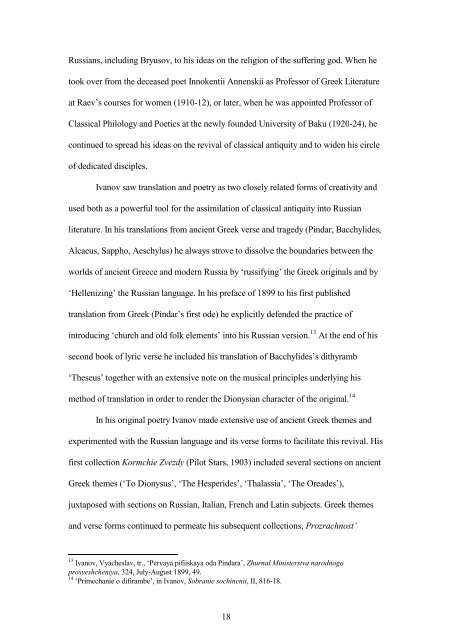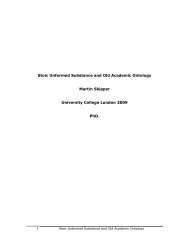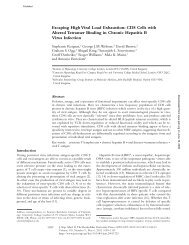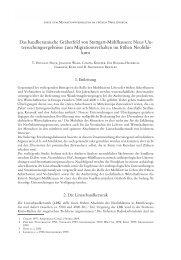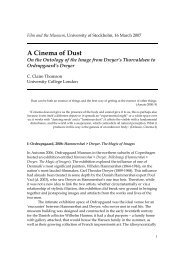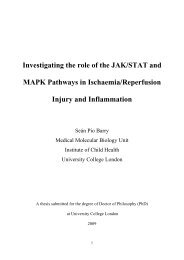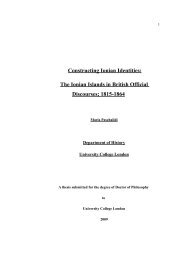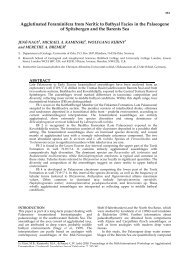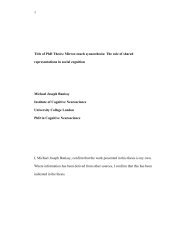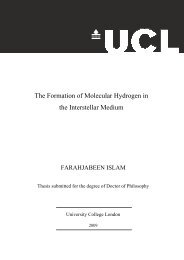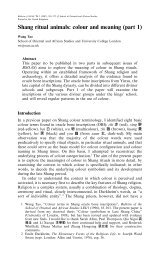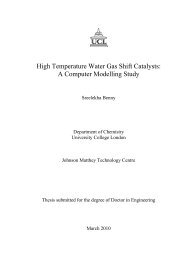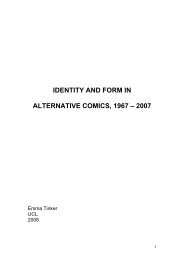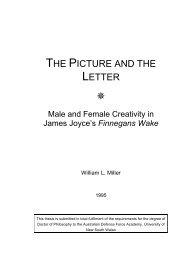Vyacheslav Ivanov and C.M. Bowra: a ... - UCL Discovery
Vyacheslav Ivanov and C.M. Bowra: a ... - UCL Discovery
Vyacheslav Ivanov and C.M. Bowra: a ... - UCL Discovery
You also want an ePaper? Increase the reach of your titles
YUMPU automatically turns print PDFs into web optimized ePapers that Google loves.
Russians, including Bryusov, to his ideas on the religion of the suffering god. When he<br />
took over from the deceased poet Innokentii Annenskii as Professor of Greek Literature<br />
at Raev’s courses for women (1910-12), or later, when he was appointed Professor of<br />
Classical Philology <strong>and</strong> Poetics at the newly founded University of Baku (1920-24), he<br />
continued to spread his ideas on the revival of classical antiquity <strong>and</strong> to widen his circle<br />
of dedicated disciples.<br />
<strong>Ivanov</strong> saw translation <strong>and</strong> poetry as two closely related forms of creativity <strong>and</strong><br />
used both as a powerful tool for the assimilation of classical antiquity into Russian<br />
literature. In his translations from ancient Greek verse <strong>and</strong> tragedy (Pindar, Bacchylides,<br />
Alcaeus, Sappho, Aeschylus) he always strove to dissolve the boundaries between the<br />
worlds of ancient Greece <strong>and</strong> modern Russia by ‘russifying’ the Greek originals <strong>and</strong> by<br />
‘Hellenizing’ the Russian language. In his preface of 1899 to his first published<br />
translation from Greek (Pindar’s first ode) he explicitly defended the practice of<br />
introducing ‘church <strong>and</strong> old folk elements’ into his Russian version. 13 At the end of his<br />
second book of lyric verse he included his translation of Bacchylides’s dithyramb<br />
‘Theseus’ together with an extensive note on the musical principles underlying his<br />
method of translation in order to render the Dionysian character of the original. 14<br />
In his original poetry <strong>Ivanov</strong> made extensive use of ancient Greek themes <strong>and</strong><br />
experimented with the Russian language <strong>and</strong> its verse forms to facilitate this revival. His<br />
first collection Kormchie Zvezdy (Pilot Stars, 1903) included several sections on ancient<br />
Greek themes (‘To Dionysus’, ‘The Hesperides’, ‘Thalassia’, ‘The Oreades’),<br />
juxtaposed with sections on Russian, Italian, French <strong>and</strong> Latin subjects. Greek themes<br />
<strong>and</strong> verse forms continued to permeate his subsequent collections, Prozrachnost’<br />
13<br />
<strong>Ivanov</strong>, <strong>Vyacheslav</strong>, tr., ‘Pervaya pifiiskaya oda Pindara’, Zhurnal Ministerstva narodnogo<br />
prosveshcheniya, 324, July-August 1899, 49.<br />
14<br />
‘Primechanie o difirambe’, in <strong>Ivanov</strong>, Sobranie sochinenii, II, 816-18.<br />
18


